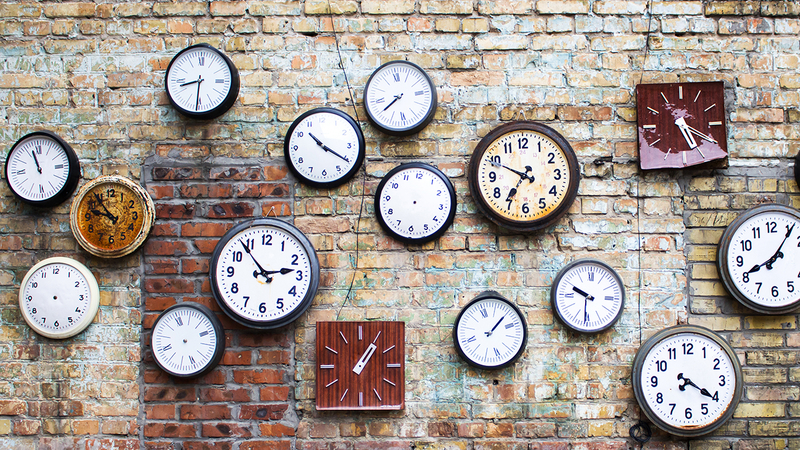LIFESTYLE
Daylight Saving Time 2022 changes on March 14. Here’s why Arizona doesn’t set its clocks

Daylight Saving Time 2022 begins at 2:00 AM on Sunday, March 14. Occupants of most states in the United States will lose an hour of rest by pushing their timekeepers ahead. Arizona doesn’t engage in such promising and less promising times since it doesn’t take part in the sunlight saving time change.
It is one of a handful of the times that occupants are pleased with how sensible and reasonable they are, contrasted with the majority of the country.
There is a sensation of prevalence over a large portion of the country and basically the most loved distraction that is lived from November to March because of the environment of the state. In any case, this light saving measure is credit Arizona can assume praise for, without managing changes.
For the state, everything began in 1967, not long after the United States embraced the Uniform Time Act, which laid out the rules for sunlight saving time. Some Arizona specialists acknowledged there was no great explanation to set clocks in the state so nightfall would happen an hour after the fact during the most sultry months of the year.
No more light needed, bless your heart
At the point when you live in the desert, light is misrepresented. In the late spring, considerably more, summer brings the sort of surplus sunlight those outcomes in a plunge in your interest. So no, you would rather not save it. In the event that it would be able, Arizonans would send what is left of their light toward the southern half of the globe. They would effectively exchange it for a 70 degree day August only one.
Assuming it was changed to sunlight saving time, summer nightfalls would happen an hour after the fact, delaying the intensity based misery that develops. Anyway, it would be better on the off chance that somebody presented similar Daylight Savings Act, which would permit timekeepers to be turned around one hour however just during May.
(The facts confirm that previous dusks would likewise mean prior dawns, however mental impacts among the populace can’t be preclude.)
Just piece of Arizona authorizes the time changes. The Navajo Nation makes the changes every year, guaranteeing that inhabitants of the booking (which traverses three states) remain on a similar timetable.
What sunlight saving time means for Arizona
- Arizona with the change puts itself three hours behind New York time, two hours behind Chicago, one hour behind Denver and even with Los Angeles.
- Games beyond Arizona will begin at least one hours sooner. That implies a great deal of fans have a brew at 10 a.m. at the point when the principal NFL round of the day starts.
- Programs will begin prior on some digital TV organizations. That is if it’s actually being watch at the booked time, instead of through DVR or streaming.
Here’s Why Arizona Doesn’t Observe Daylight Savings Time
This weekend, most of the US changes its clocks by one hour.
Arizona and Hawaii will not.
For most Arizonans, it means we’ll be at the same time as California, three hours behind the East Coast.
Arizonans love this special privilege. In January 2015, a legislator must establish daylight saving time. It was received with shock and outrage. Rep. Phil Lovas, R-Peoria, quickly dropped the 2014 House bill.
Origins
Daylight saving time began when “war time” was establish in the US in 1918 to save fuel during World War I.
In Arizona, Maricopa County supervisors refused to accept the change. In 1919, Phoenix and the rest of the state observed different time zones.
War time, or daylight saving time, was reinstate in World War II. It was brought back permanently in the Uniform Time Act of 1966.
Arizona participated for one summer. Then we hit on the horrible idea of having more sunlight at night. Longer sunlight means more air conditioning and more energy used. And more misery.
In a near unanimous vote, Arizona lawmakers agreed to eliminate daylight saving time in 1967.
Navajo Nation
However, the Navajo Nation in the northeastern quarter of the state observes daylight saving time. The Hopi Nation, completely surrounded by the Navajo reservation, does not.
Indiana was in the same boat as Arizona until 2005. Rural Indianans said “changing the clock is consider ‘unnatural’ and ‘unhealthy for cows,’”. At one point in the debate, as IndyStar.com puts it.
Some territories also do not change like Puerto Rico and Guam.
Whether daylight saving time saves energy or increases productivity is debatable. But “going forward” and “going back” have been link to increas traffic accidents. Due to unknown lighting in the morning or at night.
Some states want to keep daylight saving time forever.
